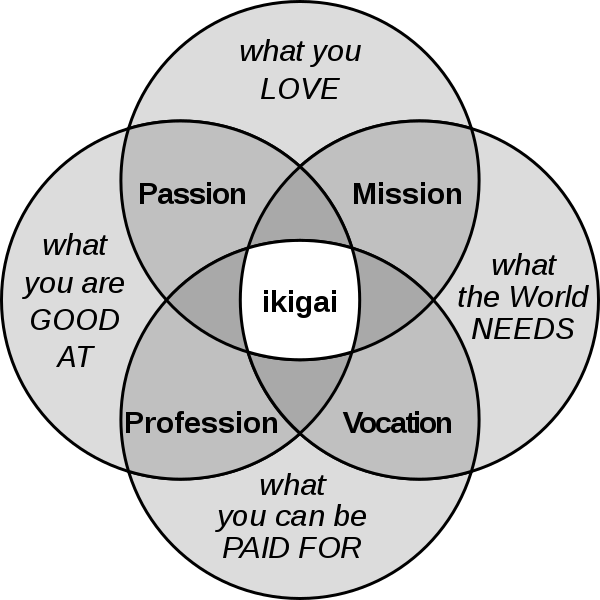Jobs with a purpose
Without going too political here, I’m strongly convinced that climate change is probably the biggest challenge of our time and the realization that “we are the first generation to feel the effect of climate change and the last generation who can do something about it” (Barack Obama, 2014) is somewhat worrying.
At latest when I first come across the following quote in this amazing book, I realized I strongly need a job with a purpose.
It’s hard to save the world on a voluntary basis when others are destroying it full-time – Dr. Eckart von Hirschhausen
Countless jobs exist that I don’t think have an actual purpose, at least not in my understanding of the term. Many (mostly white-collar) jobs only exist to solve problems they had artificially created before in the first place. Another large portion of jobs only exist for the pure sake of generating profit for corporate companies (and, ultimately, to get a few individuals rich) or to blindly drive economical growth – whereby it is highly debatable whether that is sensible and sustainable.
In my opinion, one strong indicator for a job to be purposeful is the degree to which it comes with a societal impact. When I visited Klimahaus Bremerhaven a few months ago, I (virtually) met a series of fascinating characters as part of the exhibition whose jobs I thought were very inspiring. The virtual journey around the globe introduced a rescue diver who helped find missing people during the 2021 flood disaster in Ahrtal and a psychologist who helped with trauma recovery after the catastrophe. Another character was a physicist who dedicated his life to developing early warning systems for cyclone in Bangladesh. Yet another portrait was that of Nora Graser, a geophysicist who committed to go on a 15-months expedition at Neumayer research base in Antarctica to conduct scientific experiments of tremendous global relevance. Similarly, the German astronaut Alexander Gerst gave an incredibly inspiring talk about his time as commander of the ISS at my university a while ago. The list goes on forever and should also include whistle-blowers like Edward Snwoden, activists like Greta Thunberg or politicians and leaders like António Guterres or even Bill Gates (lately). The point I want to make is: all of these are jobs that I would consider to have a purpose beyond just economical wealth.
The right job for oneself
Given the above examples, the challenge is finding the right purposeful job for oneself. Obviously, I don’t have an education as a geophysicist or astronaut and it’s unlikely that I’ll get into international politics anytime soon (not that I actually wanted to). My expertise revolves around technology, software, computer science, etc., so the most obvious thing to do is look for a purposeful job within my very profession.
The purpose diagram (~ “ikigai”)
This aligns with a concept that I got introduced to by the aforementioned book: the ikigai (later I learned that the original Japanese ikigai concept is actually widely misinterpreted in today’s western world and you should rather refer to the purpose diagram instead).

The idea is to essentially ask yourself four questions and then act in a way that jointly maximizes the degree to which all of these “requirements” are fulfilled. With regard to choosing a job, you’d want to find one where all of these questions can be answered positive.
- What do I love doing?
- What am I good at?
- What am I being paid for?
- What does the world need?
The fourth question is pretty much about what I explained as having a purpose before.
Obviously, those four different aspect are in contrast to some extent. For example, if I got to choose freely, I’d probably be doing charity work (within my domain) all day long. However, realistically, I still have to earn a living, so I’ll have to answer yes to the third question as well. As usual, it comes down to a compromise.
To give an example for myself: I love sports, cooking and coding, whereas I’d only actually consider myself good at the latter. With respect to coding, I’m particularly interested in optimizing things, that is, building efficient and scalable systems, processing vast amounts of data in an efficient manner, etc. Luckily, software development is also a branch that (at least for now) pays quite well. And to have a purpose (aka. a societal impact), one option would be to aim for a development job in climate tech. This is just one of many possible instantiations of the (Westernised version of) ikigai.
As closing words, I want to quote a person whom I largely despise in most regards today. Nevertheless, this statement (and a few others) stuck with me:
Try to be useful. It’s hard to be useful. […]. Have positive net contribution to society. – Elon Musk @ Lex Fridman podcast.
Comments